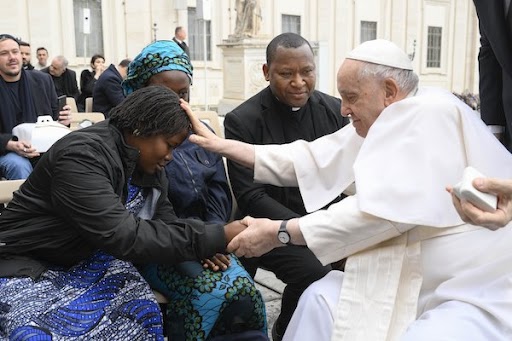
by Ngala Killian Chimtom
YAOUNDÈ, Cameroon (Crux) — It was a bloody lead-up to Easter in Nigeria.
On April 8, Fulani herdsmen attacked Mgban in Benue State, located in north central Nigeria.
“I just received a report that about 35 persons were killed [in the attack],” Father William Shom, a priest in Yelewata, told Crux.
The following Wednesday, herdsmen struck the Umogidi community in Benue State, killing at least 50 people. And between Monday and Tuesday, separate attacks in different localities of Benue state left at least six other people dead.
In March, at least 60 Christians were killed by Fulani herdsmen, according to Morning Star News.
Governor Samuel Ortom of Benue urged citizens to “remain calm and be security conscious and remain ever vigilant to avoid being killed like chickens.”
Nigeria has a population of over 200 million, almost evenly divided between Christians and Muslims. Christians face persecution in the Muslim-majority north — where Sharia Law has been imposed in several states — and in Nigeria’s “Middle Belt,” where the Muslim north meets the Christian south.
The Islamist Boko Haram have been operating in the country’s northeast since 2002, and Fulani herdsmen — who are Muslim — have been attacking Christian farming communities throughout the country. Young people in Benue recently took to the streets to protest the killings.
“People are butchered in their various homes. Pregnant women were burnt alive. My mother was sitting in our compound, and she was killed. My house and my documents were razed. People have been displaced from their ancestral homes,” said Daniel Godwin, one of the protesters.
“The King [local tribal leader] has been killed … There is no school as we speak. People sleep in the open because there is no place to call home anymore,” Godwin added.
The chairman of Otukpo Local Government Council, Bako Ejeh, lost two sons during Wednesday’s attacks, as well as his brother-in-law and a nephew.
“It was an unprovoked attack; we had no problems with the herdsmen, that is why we cannot understand why they attacked us in such a gruesome manner,” he said.
Father Shom said, “It has become a norm for a day to not pass without hearing of one or two attacks. This is coming at the perilous time of Christ’s own agony, suffering, and death on the cross.”
He added that the killings were a result of “political sabotage by some evil men, who see nothing wrong in killing.”
Father Shom spoke about “some idiots who have nothing to offer, trying to take over our land and cause pain for our people. We are really in pain.”
He noted that it was “a trying moment” for Nigeria, reminiscent of Christ’s suffering and death.
In his Easter message, Archbishop Ignatius A. Kaigama of Abuja noted that “from Boko Haram to banditry and kidnapping, the threat of violence and terrorism, the stories are both heart-breaking and fear-inspiring just as the terrible events of Good Friday were over 2,000 years ago.”
He said ordinarily, such challenges make it harder “to feel hopeful and optimistic about the present, never [mind mentioning] the future.”
Archbishop Kaigama said Easter should be a time for Nigerians “to increase our commitment and vigor in confronting our challenges and difficulties, from insecurity and corruption to poverty and unemployment.”
“Easter reminds us that even in the face of violence and persecution, love and compassion can triumph,” he said. “It is a time of renewal, rebirth, and hope [for Nigeria]. It is a time to celebrate the resurrection of Jesus Christ and the victory of life over death.”
The archbishop warned against ethnic, religious, and political division and called for accountable and transparent leadership and for honesty and ethics in the behavior of everyday Nigerians.
“Our leaders must be ready to make personal sacrifices rather than live in scandalous luxury while the vast majority of those who elected them wallow in incredible poverty, complicated by insecurity,” Archbishop Kaigama said. “Our leaders must have a living, not a dead conscience, whereby public funds are taken and misapplied, and costs of government businesses inflated for selfish gains.
“Nigerians need leaders who supervise the recruitment, employment, appointment, promotion of citizens or admission into important institutions based on merit and not on ethnic, religious grounds or selfish geopolitical considerations,” Archbishop Kaigama concluded. “It is only by working together to enthrone a culture of trust, to fight corruption that we can create a Nigeria that is fair and just to all.”
